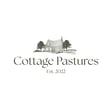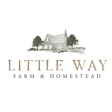
On Food, Culture and the Catholic Faith
In this episode, I had a unique opportunity to speak with Brandon Sheard and Ross McKnight We recorded this episode ahead of The Art of Foie Gras, presented by Ross and Brandon at Backwater Foie Gras in Louisiana. In this episode we cover an array of topics including meat production, culture, the Catholic faith, hands on learning and more. This was a great interview and presents another example of the Catholic Faith active in the world today.
If you enjoyed this episode, please consider sharing it with someone you know.
Guest Notes:
Ross McKnight of Backwater Foie Gras offers courses to help instruct people in homesteading and farming methods. Be sure to consider joining Ross and team at Backwater Foie Gras during an in-person course including the upcoming Art of Foie Gras at https://backwaterfoiegras.com/foiegrasclass.
Check out the Backwater Foie Gras website at: https://backwaterfoiegras.com/
Brandon Sheard of Farmstead Meatsmith is known for his excellent demonstrations and training in animal butchering. You can find information about upcoming, on-farm courses at the Farmstead Meatsmith Website: https://farmsteadmeatsmith.com/.
Upcoming Farmstead Meatsmith Events: https://farmsteadmeatsmith.com/upcoming-classes/
Additional Notes:
If you're looking to stock up on beef - consider purchasing from Ripley Cove Farms. You can find them at https://ripleycovefarms.com/. Be sure to use code LITTLE WAY for 10% off your order.
Real Estate for Life is a real estate brokerage with over 1,400 Prolife Real Estate Agents worldwide. They have completed over 10,000 real estate transactions and they report 65% of their revenue goes to a Prolife or Catholic Apostolate. You can quickly find an agent near you through their website at Realestateforlife.org. And if you let them know that you learned about Real Estate for Life from Little Way Farm and Homestead, that helps support our family in continuing the work of Little Way Farm and Homestead. Now, back to the episode.
Link: https://realestateforlife.org/
___
For more information about Little Way Farm and Homestead, including the farm, podcast, and upcoming events, check out https://littlewayhomestead.com/.
For media inquiries, advertising, speaking request, guest referrals, consulting and more - email us at hello@littlewayhomestead.com.

